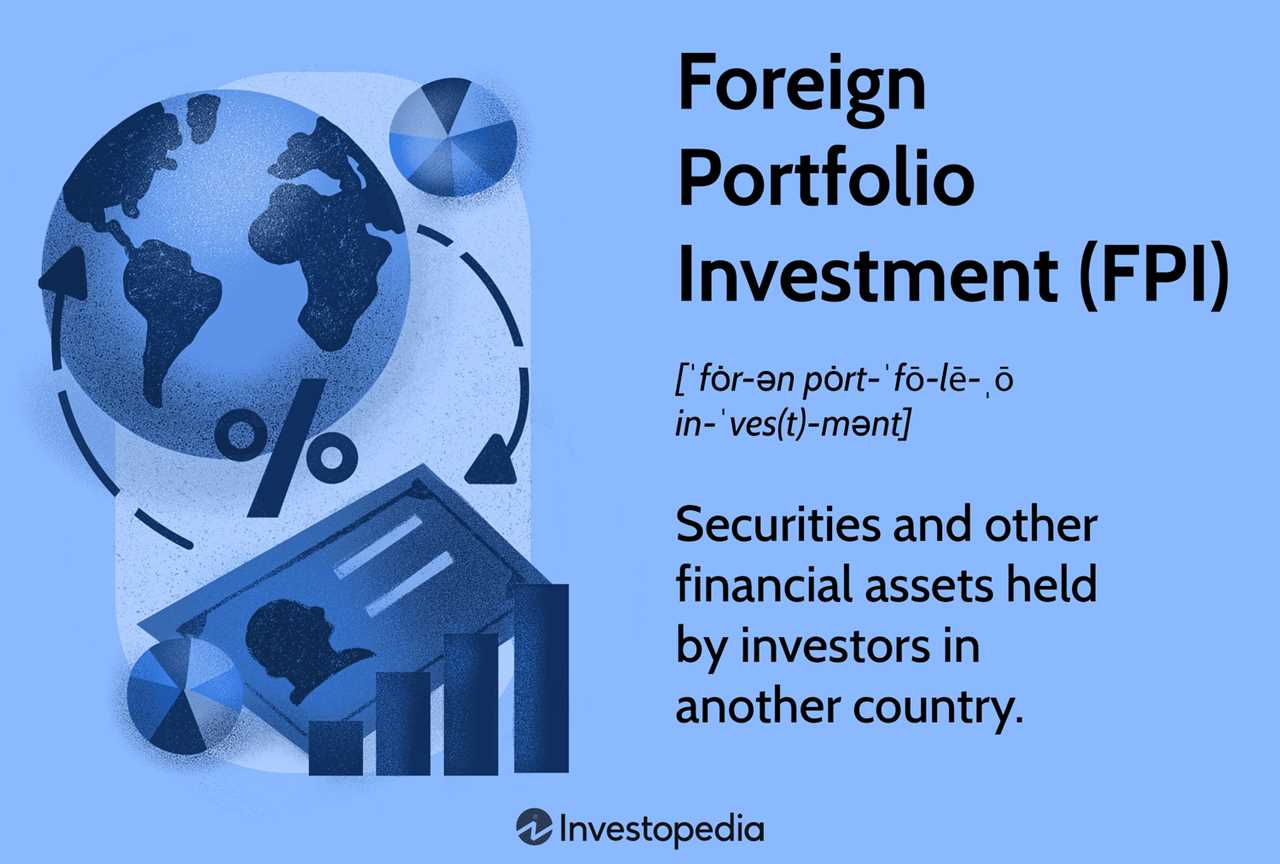Benefits of Foreign Portfolio Investment
Foreign Portfolio Investment (FPI) offers numerous benefits for investors looking to diversify their portfolios and gain exposure to international markets. Here are some key advantages of engaging in FPI:
| 1. Diversification: | One of the primary benefits of FPI is the ability to diversify investment holdings across different countries and asset classes. By investing in foreign securities, investors can reduce their exposure to domestic market risks and potentially enhance their overall portfolio returns. |
| 2. Access to Global Opportunities: | FPI provides investors with access to a wide range of global investment opportunities that may not be available in their home country. This allows investors to capitalize on emerging markets, industries, and companies that have the potential for high growth and returns. |
| 3. Enhanced Returns: | Investing in foreign markets can offer the potential for enhanced returns compared to domestic investments. This is particularly true in developing economies where rapid economic growth and market expansion can lead to higher investment returns. |
| 4. Currency Diversification: | FPI allows investors to diversify their currency exposure by investing in securities denominated in different currencies. This can help protect against currency risk and provide opportunities for gains if the investor’s home currency depreciates against the foreign currency. |
| 5. Portfolio Optimization: | By including foreign securities in their portfolios, investors can optimize their overall risk and return profile. FPI can help reduce portfolio volatility and enhance risk-adjusted returns by spreading investments across different markets and asset classes. |
Risks Associated with Foreign Portfolio Investment
1. Market Risk

One of the primary risks of FPI is market risk. This refers to the possibility of losses due to fluctuations in the prices of securities in foreign markets. Factors such as economic conditions, political instability, and changes in government policies can all impact the performance of foreign markets. Investors must be prepared for the possibility of significant market volatility and the potential for losses.
2. Currency Risk

Currency risk is another important consideration when engaging in FPI. Investing in foreign markets means exposure to different currencies, and fluctuations in exchange rates can significantly impact investment returns. If the value of the foreign currency decreases relative to the investor’s home currency, it can result in a loss when converting back to the home currency. Currency risk can be mitigated through hedging strategies, but it is important to carefully assess and manage this risk.
3. Liquidity Risk
Liquidity risk refers to the possibility of not being able to buy or sell securities in a timely manner without impacting their market prices. Some foreign markets may have lower trading volumes and limited liquidity compared to domestic markets. This can make it more difficult to enter or exit positions, potentially leading to higher transaction costs or unfavorable pricing. Investors should consider the liquidity of the foreign market before making investment decisions.
4. Regulatory and Political Risk
Regulatory and political risks are particularly relevant in foreign markets. Changes in government policies, regulations, or political stability can have a significant impact on the investment environment. These risks can range from new tax laws or regulations that affect investment returns to political unrest or conflicts that disrupt markets. It is crucial for investors to stay informed about the political and regulatory landscape of the foreign market they are investing in.
5. Country-Specific Risks
Each country has its own unique set of risks that investors need to consider. These can include economic factors, legal systems, cultural differences, and social instability. For example, emerging markets may offer higher growth potential but also come with higher risks due to less developed infrastructure and institutions. It is important to thoroughly research and understand the specific risks associated with investing in a particular country.
While foreign portfolio investment can provide opportunities for diversification and potentially higher returns, it is essential to carefully assess and manage the risks involved. Investors should conduct thorough research, consult with financial professionals, and diversify their portfolios to mitigate the potential impact of these risks.
Factors to Consider when Engaging in Foreign Portfolio Investment
Foreign portfolio investment (FPI) can be a lucrative opportunity for investors looking to diversify their portfolios and access new markets. However, it is important to consider several factors before engaging in FPI to ensure a successful and profitable investment. Here are some key factors to consider:
1. Economic and Political Stability:
2. Market Size and Growth Potential:
Consider the size and growth potential of the foreign market you are considering. Larger markets with strong growth prospects may offer more opportunities for investment and higher returns. Analyze the market’s demographics, consumer trends, and industry outlook to gauge its growth potential and align it with your investment objectives.
3. Currency Risk:
Foreign portfolio investment involves exposure to currency risk. Fluctuations in exchange rates can impact the value of your investment, either positively or negatively. Evaluate the stability of the foreign currency and its potential impact on your investment returns. Consider hedging strategies or diversifying your investments across multiple currencies to mitigate currency risk.
4. Regulatory Environment:
5. Investment Objectives and Risk Tolerance:
Define your investment objectives and assess your risk tolerance before engaging in FPI. Determine whether you are seeking long-term capital appreciation, income generation, or a combination of both. Consider your risk tolerance and investment horizon to choose the most suitable foreign market and investment instruments.
6. Access to Information and Expertise:
7. Diversification:
Diversification is a key strategy to mitigate risks in FPI. Spread your investments across different countries, industries, and asset classes to reduce the impact of any individual investment’s performance. Diversification can help protect your portfolio from country-specific risks and market fluctuations.
By carefully considering these factors, you can make informed decisions when engaging in foreign portfolio investment and increase your chances of achieving your investment objectives.

Emily Bibb simplifies finance through bestselling books and articles, bridging complex concepts for everyday understanding. Engaging audiences via social media, she shares insights for financial success. Active in seminars and philanthropy, Bibb aims to create a more financially informed society, driven by her passion for empowering others.
